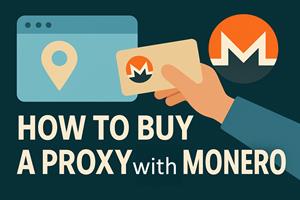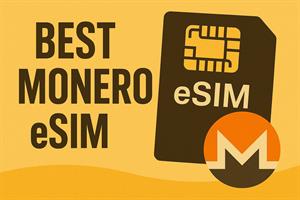Need a private proxy you can pay for with Monero? This guide explains the key proxy types, how to choose the right plan, and exactly how to pay in XMR. It also highlights vetted vendors from community listings so you can get online fast—without handing over unnecessary personal data.

What You’re Actually Buying: Proxy Basics
- Protocol: HTTP/HTTPS vs SOCKS5 vs Shadowsocks/Trojan/VMess/VLESS.
- IP Source: Datacenter vs Residential vs Mobile.
- Allocation: Dedicated/Static vs Rotating/Shared.
- Location: Choose regions matching your target websites.
Where to Buy Proxies With Monero
These providers appear in the community listings and explicitly offer proxy or proxy-adjacent services you can purchase online. Always read the plan page for limits, AUP, and KYC requirements.
Residential, Rotating & Datacenter Proxies
- FleetProxy.io — Rotating residential IP proxy service. Ideal for scraping, ad verification, and multi-accounting. (UAE)
- Proxys.io — Offers individual IPv4, shared IPv4, residential IPv4, mobile IPv4, and IPv6 proxies. Good range of dedicated & rotating options. (UK)
- ProxySocks5 — Sells datacenter & residential proxies, SOCKS5 / HTTP / Shadowsocks, plus static IP VPN and rotating HTTP gateways. (Romania)
- SpyderProxies — Premium residential, budget residential, static residential, datacenter, and LTE/mobile proxies. (US)
Layer-7, Offshore & Custom Proxies
- Altrosky — Offshore servers with Layer-7 proxy services. Contact required for purchase; suitable for semi-custom infrastructure.
VPN With “Stealth Proxy” Protocols (Alternative to Proxies)
- Xeovo VPN — WireGuard/OpenVPN + Shadowsocks, Trojan, VMess, VLESS. Useful when you need DPI-resistant proxy-like behavior.
Buy Proxy/VPN Credit & Digital Goods With XMR
- ProxyStore — Digital Goods — Buy coupons and digital goods with Monero.
- ProxyStore — English — Multiservice shopping proxy that purchases on your behalf.
- ProxyStore — Order Service — Privacy-friendly custom ordering with XMR.
Step-by-Step: Buying a Proxy With Monero
1) Define your use case
- Scraping/ad-verification: Rotating residential pools (FleetProxy.io, SpyderProxies).
- Login-heavy sites: Dedicated residential or high-quality datacenter (Proxys.io, ProxySocks5).
- Simple browsing/geo-unlock: Datacenter proxies or stealth-protocol VPNs (Xeovo).
2) Pick a vendor & plan
- Check protocol, IP type, bandwidth, concurrency, and locations.
- Start with a short plan to test reliability.
3) Pay with Monero
- Select XMR at checkout when available.
- If vendor does not support XMR directly, use ProxyStore as a voucher/intermediary.
4) Configure your apps
- Browser: enter proxy host/port + auth.
- Scrapers: use rotation gateways or pool endpoints.
- Stealth protocols: import Shadowsocks/Trojan/VMess configs.
5) Test & harden
- Verify IP, ASN, rotation timing, and geo.
- Use delays, session rotation, and concurrency limits.
Monero-Friendly Proxy Vendors at a Glance
- Rotating Residential: FleetProxy.io
- Static & Rotating IPv4/IPv6: Proxys.io
- SOCKS5 / HTTP / Shadowsocks: ProxySocks5
- Premium Residential / Mobile: SpyderProxies
- Layer-7 / Offshore: Altrosky
- Stealth-Protocol VPN: Xeovo VPN
- XMR Vouchers: ProxyStore — Digital Goods
Final Tips
- Start small: Test the provider before scaling.
- Match protocol to tool: SOCKS5 for apps; HTTP for scraping; Shadowsocks/Trojan for DPI resistance.
- Keep credentials safe: Store your endpoints & renewal dates securely.
Want more Monero-friendly privacy tools? Browse the living directory at Monerica.com.

